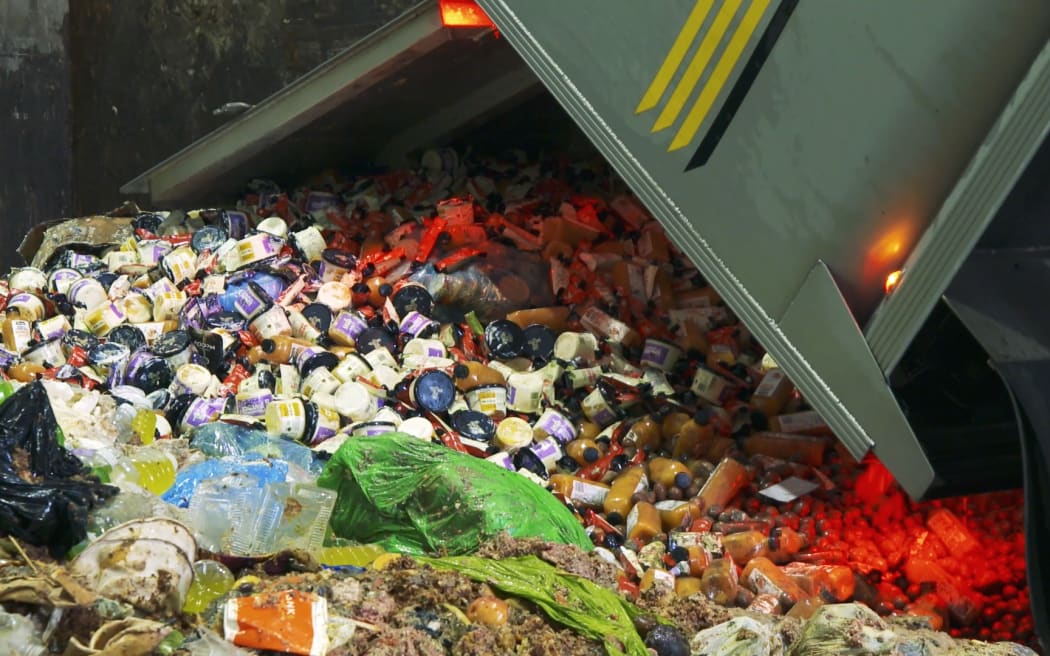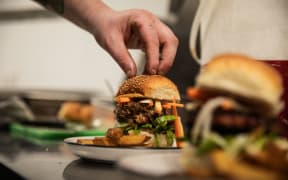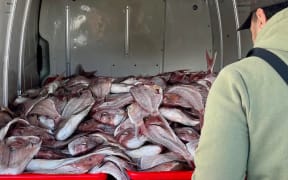
File photo. The survey suggests $1510 of food is being thrown out per household each year. Photo: RNZ / Nick Monro
New Zealanders are wasting less food but the cost of what's being thrown out has risen to $3.2 billion a year, a survey suggests.
The Rabobank-KiwiHarvest Food Waste survey found households were throwing away 12.2 percent of the food they bought down from 13.4 percent last year.
The survey of 1500 people found households were throwing away 12.2 percent of the food they bought, down from 13.4 percent last year.
This translates to $1510 of food being thrown out per household each year.
But the growing cost of food meant the overall value of food being put in the bin is up from $3.1b to $3.2b.
Respondents were mostly concerned about the waste of money involved, waste with this cited as a key concern by 74 percent.
Gen Z respondents estimated they wasted significantly less than last year (19.2 percent form 28.2 percent), however they continue to be the most wasteful of all the age groups.
Rabobank head of sustainable business development Blake Holgate said with high food inflation over the last year he expected to see bigger changes in food waste behaviors and attitudes but the survey results show they remain largely unchanged.
The survey found the key reasons for wasting food continued to be 'food going off before you can finish it' (50 percent) and 'before use by and best before dates" (32 percent), while the major food waste concerns remained 'cost' (74 percent) and 'feelings of guilt that other people around New Zealand going without' (35 percent).

KiwiHarvest founder Deborah Manning Photo: Supplied
Types of food ending up in the bin were in line with last year with vegetables making up 38 percent bread 29 percent and fruit 25 percent.
KiwiHarvest food rescue charity founder Deborah Manning said improvements in a few key areas have helped drive the small drop in estimated food waste.
"One of the major positives in the survey findings was that more Kiwis are now correctly defining what is meant by a best-before food label (63 percent versus 57 percent previously).
"And this flowed through to a sizable lift in the number of people saying they routinely eat food after best-before dates (18 percent compared to 13 percent previously) when the food is not damaged or perished."
People are also doing better planning, eating leftovers and buying less food, Manning said.




